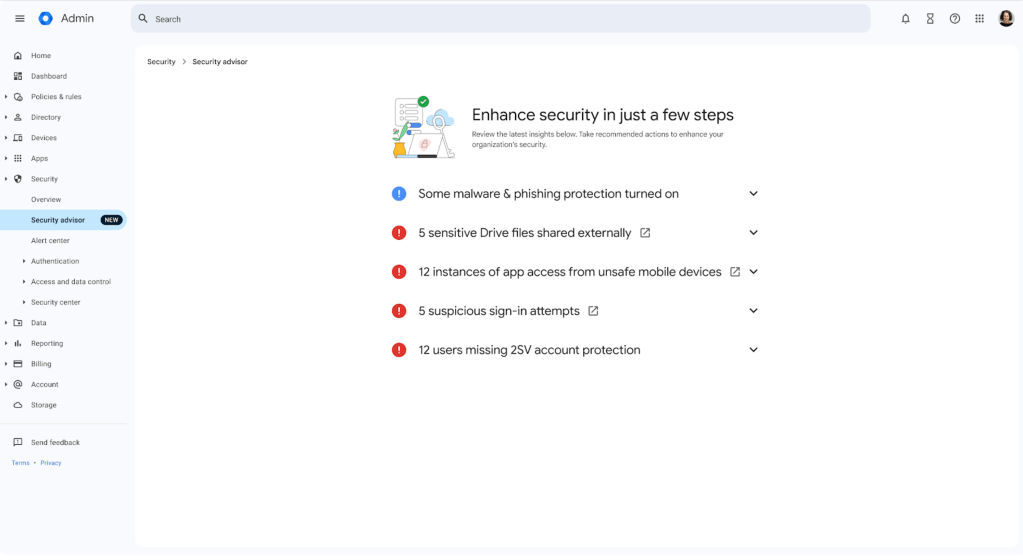Beyond the Writing Tools coming in Apple Intelligence, significantly faster processors, and the luxurious look of the iPhone 16 Pro models, there was little of explicit interest for enterprise users at Apple’s Monday product launch. Sure, the new iPhones are better in a multitude of ways, but it’s the platform — in this case, iOS 18 — that remains the key selling point for business professionals.
Here’s a rundown of some of the ways iOS 18 will help users get more done.
For many, iPhone 16 is a software story
We now know Apple will introduce iOS 18, the software that runs Apple’s devices and supports iPhones, on Monday, Sept. 16. When it does, it will also ship an iOS 17.7 update for customers who don’t yet want to upgrade to the new mobile operating system.
With interest in Apple Intelligence running high (even though it won’t arrive til later this fall), enterprise purchasers should note the products removed from sale as Apple introduced its new iPhones. These include the iPhone 15 Pro, iPhone 15 Pro Max, and iPhone 13. (The company still sells the iPhone 14, iPhone 14 Plus, iPhone 15, and iPhone 15 Plus.) It’s likely Apple will add additional models (such as the iPhone XR) to its vintage and discontinued products list in the coming months.
This is a fairly standard cadence, but it is important to note that only the iPhone 15 Pro devices and iPhone 16 range will run Apple Intelligence. Apple usually provides service and parts for five to seven years, but the move to Apple Intelligence means some users (including enterprise customers) will find they must invest in more recent devices to use it.
They might want to bite the hardware bullet. Apple Intelligence provides several useful business tools, including powerful writing tools and contextual intelligence applied in useful ways (in Mail or Calendar, for example) to help busy professionals stay on top of things. Some may choose to use these tools on other Apple devices, as they are just as useful on a Mac.
Otherwise, iOS 18 provides a grab bag of enterprise-useful improvements that don’t require the latest hardware. As it usually does, Apple has tweaked a feast of items across its operating system, and published a PDF containing 250 of these improvements.
Better for calls
While many younger employees may prefer messaging, phone calls remain critical in business, and iOS 18 has a range of improvements that can help:
Available for the iPhone 12 or newer, live audio transcription makes it possible to record audio within Notes or during a Phone app call from within the app. When you record a call, a warning message will let others know you are doing so. The conversation will be automatically transcribed and made searchable.
You can also search call history, dial smarter, and switch SIM cards more easily. If you use AirPods Pro you’ll benefit from much improved voice isolation through advanced computational audio. Finally, if you use messages for business communications, you can now also schedule messages as well as emails for despatch at a certain time. And RCS is now supported.
Better for missed calls
It would be nice if operators would expedite support for Live Voicemail. When you miss a call, this generates a real-time transcription of the message someone is leaving you as they speak – you can physically see it on your iPhone screen. It helps you stay focused while remaining responsive to important communications.
With iOS 18, Live Voicemail will gain support for additional languages and countries, including English (UK, Australia, India, Ireland, New Zealand, Singapore, South Africa, Puerto Rico), Spanish (US, Mexico, Spain, Puerto Rico), French (France), German (Germany), Japanese (Japan), Mandarin (China, Taiwan, Macao), Cantonese (China, Hong Kong, Macao), and Portuguese (Brazil).
Cross-platform password management
The new Passwords app essentially revamps a service already available on iOS, surfacing it to make it easier. The app will sync and be made available across all your devices, including Windows systems. Combined with MDM tools, this facilitates provisioning, while maintaining the secure end-to-end encryption for which Apple is famous. The Passwords app makes it easy to search for the right account, while passwords will automatically be added to the app. Developers also gain an automatic passkey upgrade API to create a passkey when someone signs in to your app to let then know the passkey was saved.
Because some apps need to be secret
One feature that might be useful to some business users lets you lock and hide apps. A locked app gains an additional verification step that requires a passcode, FaceID or TouchID authorization before it can be opened. That’s good, but for enterprise app developers it’s important to note that information from a locked app cannot then be surfaced for use elsewhere on the system, including in search. You can also hide apps from view.
What time was I meant to be where?
While Apple Intelligence promises some excellent contextual AI features, Apple has also looked to the basics of its Calendar app. This now provides a redesigned month view to help you achieve a better overview of what’s coming up. Integration between Calendar and Reminders has also improved, so you can create Reminder app interactions from inside Calendar. This small but significant improvement should help dramatically reduce the number of missed appointments.
A Lock Screen that works for you
While users might enjoy swapping out the flashlight or Camera app triggers from the Lock Screen for other apps, developers will want to tweak their apps for easier use from that screen using Apple’s new Controls API. App Intents will enable Siri to handle many more actions, so your enterprise warehousing app might end up being fully voice-controlled, for example, enabled by a single tap on that Lock Screen button.
Please follow me on LinkedIn, Mastodon, or join me in the AppleHolic’s bar & grill group on MeWe.



















